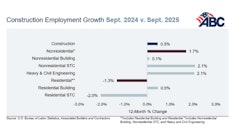
Article is reprinted with permission from The Practical Real Estate Lawyer
Many construction disputes can be resolved through mediation. This series of articles addresses some of the best practices that can lead to success in mediation. The series considers the entirety of the mediation process from preparation for mediation, the mediation session itself,and completion of mediation (if successful, through settlement agreement).
Author Steven C. Bennett wrote an extensive article covering the construction mediation process, so ForConstructionPros.com has broken the article into three smaller articles summarizing parts of Bennett’s original article. This first article discusses preparing for mediation. The second part of the article takes a look at conducting the mediation. The third article summarizes completing the mediation process.
Forms of mediation
Forms of mediation vary widely, but (in broad terms) two main types have developed. The focus of this article is on “facilitative” mediation — a process where the parties engage in negotiations with the assistance of a mediator. The mediator may comment on and question the parties regarding the strengths and weaknesses of their claims and defenses and may suggest forms of compromise that could be adopted by the parties. But the mediator does not, per se, provide an opinion on the likelihood of success of each party.
That form of “evaluative” mediation, though non-binding (absent mutual consent of the parties) often involves more formal attempts to persuade the mediator of the merits of each party’s position, and thus may resemble more of the adversarial process (arbitration, litigation). Facilitative mediation typically embodies, as a central feature, control of the process (and the outcome) by the parties themselves.
Preparation for mediation
This part concerns the period, prior to “live” mediation sessions, wherein the parties choose a mediator, decide on the logistics of mediation and submit pre-mediation statements.
Discussions with other parties and their counsel can help determine when best to proceed with mediation. Even if the mediation process is established by prior contract or court rules, informal modifications are always possible. Will the mediation be purely facilitative, or will it involve a mediator’s evaluation (or recommended settlement)? How will the parties structure the submission of mediation statements, exchange of information and conduct of the mediation meetings themselves? Do not accept a “cookie cutter” form of mediation if it does not work for you, and especially if you can think of a better process that is more likely to succeed. After mediator selection, work with the mediator (and the adversary) to discuss the needs of the matter, and work to shape a process that suits your particular circumstances.
Choose the right mediator
The choice of a mediator can have a critical effect on the conduct of mediation. In general, parties look for certain basic qualifications in a mediator: impartiality, fairness, intelligence, judgment, listening skills, creativity and forcefulness. Everything beyond that is “gravy:” experience in the construction industry, knowledge of construction law, experience in mediating construction disputes, and experience litigating and mediating the specific type of dispute presented in the matter at hand.
It is rare to find a “perfect” mediator for a case (there are too many variables in a construction dispute to think that one person will have the complete combination of skills to manage all such variables). An effective mediator must have a strong personality capable of commanding the respect of the parties, but at the same time humility, empathy and patience are essential. As with virtually everything in mediation, the choice of a mediator is generally a matter of compromise.
Ensure that the mediator candidate is provided complete information about the parties and personnel that will be involved in the mediation. Mediator independence is a key element of the trust that the parties must invest in the mediator. Full disclosure ensures that conflicts can be avoided and the mediation conducted smoothly, without “surprise” discovery of potentially disqualifying connections between a mediator and individual parties or their counsel.
Mediation actually begins the moment that the parties select a mediator. From that point on, the parties can and should think of the mediator as a resource to help plan the mediation process and to think through decisions that can help (or hurt) the process.
Typically, moreover, once they select a mediator (if not before), the parties are free to engage in ex parte discussions with the mediator. Parties and counsel may provide confidential information to help the mediator understand the players and the personalities involved in the dispute, any problems that may have arisen in prior communications between the parties, and other non-legal factors that could affect the course of mediation. Such confidential discussions may help the mediator formulate strategies aimed at overcoming obstacles to settlement.
Create an effective pre-mediation statement
Pre-mediation statements serve a variety of purposes. Parties and their counsel should carefully consider which of these purposes may be most important in their particular circumstances. One basic purpose is to educate the mediator about the facts and claims in dispute so that the mediator can effectively assist negotiations.
A second, often more important, purpose is to inform opposing parties about the strengths (of your positions) and weaknesses (of their positions). The goal, at a minimum, is to ensure that opposing parties understand your position, even if they do not agree with it. The purpose is to plant seeds of doubt, to suggest that the outcome (in the absence of settlement) is not as rosy as the other side may predict.
A third purpose for pre-mediation statements is to help frame the structure of negotiations. By providing a cogent analysis of the claims and defenses at issue, and of the damages that may be awarded, a pre-mediation statement can make the mediator’s job (helping each side to view the dispute in a new light) much easier.
A final purpose for pre-mediation statements is to apprise the mediator of any obstacles or opportunities for effective negotiation that may arise out of facts that are not strictly relevant to the legal dispute.
Part 2: Conducting the Mediation
Part 3: Completing the Mediation Process
Read the entire article, Construction Mediation: Best Practices for Success.
Steven C. Bennett is a partner in the New York City law firm of Park Jensen Bennett LLP. The firm, consisting of three partners who previously served in the United States Attorney’s office together, and later (separately) as partners in three major international law firms, focuses on commercial disputes and white collar investigations. Mr. Bennett has extensive experience in construction dispute resolution, and also serves as an arbitrator and mediator for the American Arbitration Association.



















